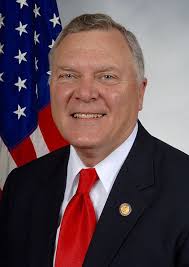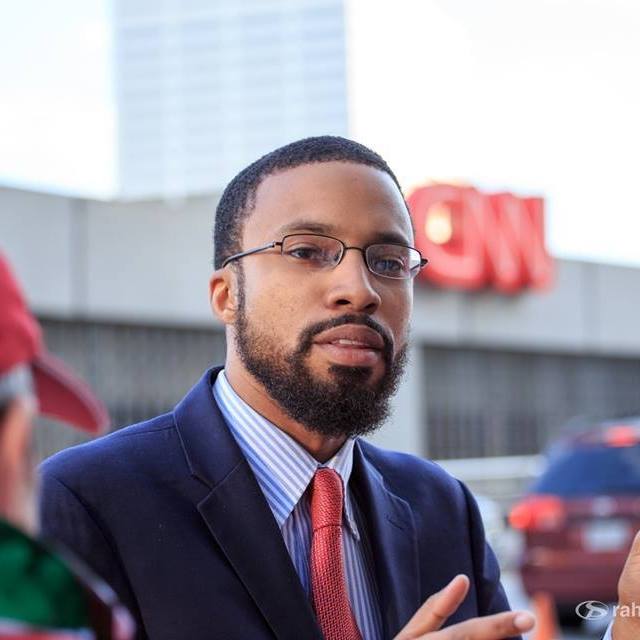Georgia Anti-BDS Law Challenged
A lawsuit is challenging Georgia's anti--BDS law after filmmaker Abby Martin was barred from speaking at Georgia Southern's Savannah campus.
Dave Schechter is a veteran journalist whose career includes writing and producing reports from Israel and elsewhere in the Middle East.

Georgia’s law intended to thwart the anti-Israel BDS (Boycott, Divestment and Sanctions) movement is being challenged in federal court by a documentary filmmaker whose invitation to speak at Georgia Southern University was withdrawn when she would not pledge to refrain from boycotts against Israel.
When Abby Martin refused to sign the state-mandated pledge, her invitation to be the keynote speaker at the 2020 International Critical Media Literacy Conference at Georgia Southern’s Savannah campus was withdrawn, and the Feb. 28-29 conference subsequently was canceled.
Georgia law requires that anyone signing a contract valued at $1,000 or more with a state agency sign the pledge. Martin was to have been paid a $1,000 honorarium, plus expenses.
The BDS movement seeks to apply economic and political pressure to force Israel to change its policies toward the Palestinians, including construction in the West Bank, often referred to by religious and nationalist Jews as Judea and Samaria.

The Georgia chapter of the Council on American-Islamic Relations, the CAIR Legal Defense Fund, and the Partnership for Civil Justice Fund filed suit Jan. 10 in the U.S. District Court for the Northern District of Georgia in Atlanta, naming as defendants Steve Wrigley, chancellor of the Board of Regents of the University System of Georgia, and Kyle Marrero, president of Georgia Southern.
“Ms. Martin’s concerns appear to be related to requirements of a state law enacted in 2016. The University System of Georgia is reviewing the matter with the Georgia Attorney General’s office,” according to identical statements sent to the AJT from John Lester, Georgia Southern’s vice president for communications and marketing, and Aaron Diamant, vice chancellor of communications for the University System of Georgia..
Neither Wrigley nor Marrero has issued a response to the suit at this writing.
The suit states that Martin’s invitation to speak “conditioned an invitation to speak at an academic conference on the Plaintiff agreeing in writing to abandon her First Amendment-protected journalism about and political advocacy for the rights of Palestinians,” and alleges violations of the First and 14th Amendments to the U.S. Constitution.

The plaintiffs asked the federal court to issue an injunction against enforcement of the Georgia law and for the statute to be declared “unconstitutional and unenforceable statewide,” and they are seeking $1,000 in compensatory damages for Martin.
The media conference, according to its website, “is designed to aid current educational leaders, future teachers, youth, and other concerned citizens in their understanding of mass media and its impact on the events that shape our daily lives. Promoting critical media literacy is essential in excavating social inequalities and fostering participatory democracy during the 21st century.”
A “Memorandum of Agreement” sent to Martin in September 2019 included a requirement that “You certify that you are not currently engaged in, and agree for the duration of this agreement not to engage in, a boycott of Israel.”
According to the suit, “Martin emailed in response: “As I’m sure you know, a lot of my work advocates the boycott of Israel … [and] I cannot sign any form promising to not boycott Israel.”
Martin told a Feb. 11 news conference, “I will not forfeit my constitutional rights by signing this pledge.” She said that much of her work supports the BDS movement and that involves pro-Palestinian organizations.
Martin created the Media Roots website, which describes itself as “a citizen journalism project that reports the news from outside of party lines while providing a collaborative forum for conscious citizens, artists and activists to unite.” She is producer of a documentary film, “Gaza Fights for Freedom.” Martin has worked for RT, a Russian state-owned television network, and for TeleSUR, a Venezuela-based television network.

At the news conference, Edward Ahmed Mitchell, executive director of CAIR Georgia, said, “That oath applies whether you are a substitute teacher who wants to work for our public school system, whether you are a construction worker who wants to build something for our state, or whether you are a journalist who wants to speak at a state university.
“Imagine if during the civil rights movement, the state of Alabama passed a law saying if you want to work for our state, you cannot participate in the Montgomery bus boycott,” Mitchell said.
Georgia Gov. Nathan Deal signed SB 327 into law on April 26, 2016.
The law amended the Georgia code “to prohibit the state from entering into certain contracts with an individual or company unless such contracts contain a certification that such individual or company does not presently conduct a boycott of Israel and will not conduct such a boycott for the duration of such contract; …”
Similar anti-BDS laws exist in 28 states, either passed by legislatures or enacted by executive order. Challenges to the laws in several states are making their way through the federal courts.
- Dave Schechter
- News
- Local News
- Community
- BDS
- Boycott Divestment and Sanctions
- Lawsuit
- GEORGIA
- Israel
- on American-Islamic Relations
- CAIR
- Cair Georgia
- Edward Ahmed Mitchell
- Edward Mitchell
- Abby Martin
- Georgia Southern University
- Critical Media Literacy Conference
- Partnership for Cicil Justice Fund
- U.S. District Court
- Steve Wrigley
- Kyle Marrero
- John Lester
- First Amendment
- Media Roots
- Governor Nathan Deal



comments